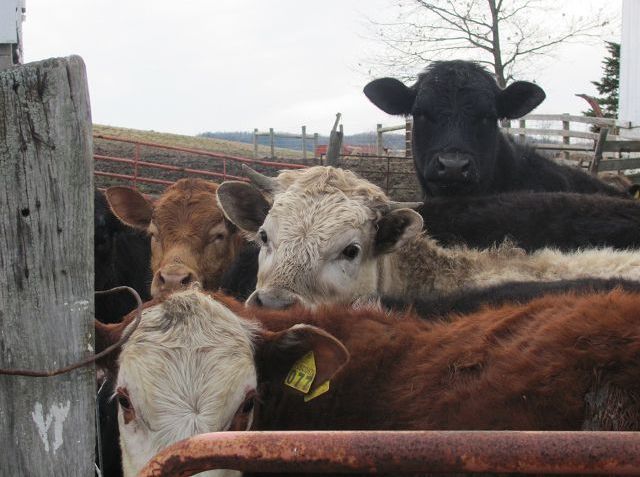Agriculture representatives speak out about challenges facing Tuscarawas County farmers
Tuscarawas County farmers had their hands full in 2011.
Chris Zoller, an Ohio State University Extension (OSUE) agent, was quick to point out why. The weather! Spring started with excess moisture which delayed planting. Rain throughout the summer was beneficial though because we saw some tremendous yields this fall. The rain was also a problem at harvest because fields were too wet to get harvest equipment in, he noted. Overall, considering the conditions farmers faced going into the spring planting season, yields were very impressive. Along with good yields – the prices farmers received for corn and soybeans remained strong. On the downside – for those having to buy feed for livestock – the prices are higher.
Dairy farmers received a welcome respite from several years of dizzyingly low prices with prices per hundredweight finally climbing up to $20 and higher. Beef cattle prices also rose substantially, up to $1.20 and more per hundredweight, but all feed and input costs rose also, minimizing profits.
The new policies for the Ohio Livestock Care Standards Board also went into effect in 2011, emphasizing proper care for agricultural animals.
The other area that has impacted farmers and rural landowners is with the Marcellus and Utica shale drilling, Zoller commented. A number of landowners have signed leases and we are starting to see drilling activity. These lease payments have allowed many landowners to pay off debts and/or make new investments. OSUE will be holding a seminar for landowners to discuss the tax management issues related to lease and royalty payments.
We have investors coming in wanting to buy land, for oil and shale mining, explained Steve Quillen, Tuscarawas County Farm Bureau president. Farmers cant compete with that. Farmland is being sold at high dollar, and the average farmer cant even come close to touching that when they need to expand. We are an agricultural county, but it can be tempting for farmers to let it all go, particularly for those who dont have a younger generation of their family coming along to take over.
If landowners have questions about drilling, leasing, etcetera, I encourage them to contact us, Zoller said. The university, led by OSU Extension, has developed an outreach center to address the many facets associated with this industry and provides unbiased, research-based, factual information.
2012 holds many challenges for agriculture.
A number of things come to mind - the Farm Bill and budgets, weather, fuel prices, input prices, and (volatility of) commodity markets, said Zoller.
Quillen shares the agents concerns.
Are we going to be able to hold the cost of production, and will commodity prices hold long enough to keep our profitability and viability going? 2008 and 2009 were awful, particularly for dairy farmers. In 2010 we started to rebound some, but we were playing catch up from the two years previous. We hope to have a nice average over the next two or three years. The market fluctuations over the last four years are not something we would want. Where do you start when it comes to planning?
The Tuscarawas County Extension office can be reached at 330-339-2337.

